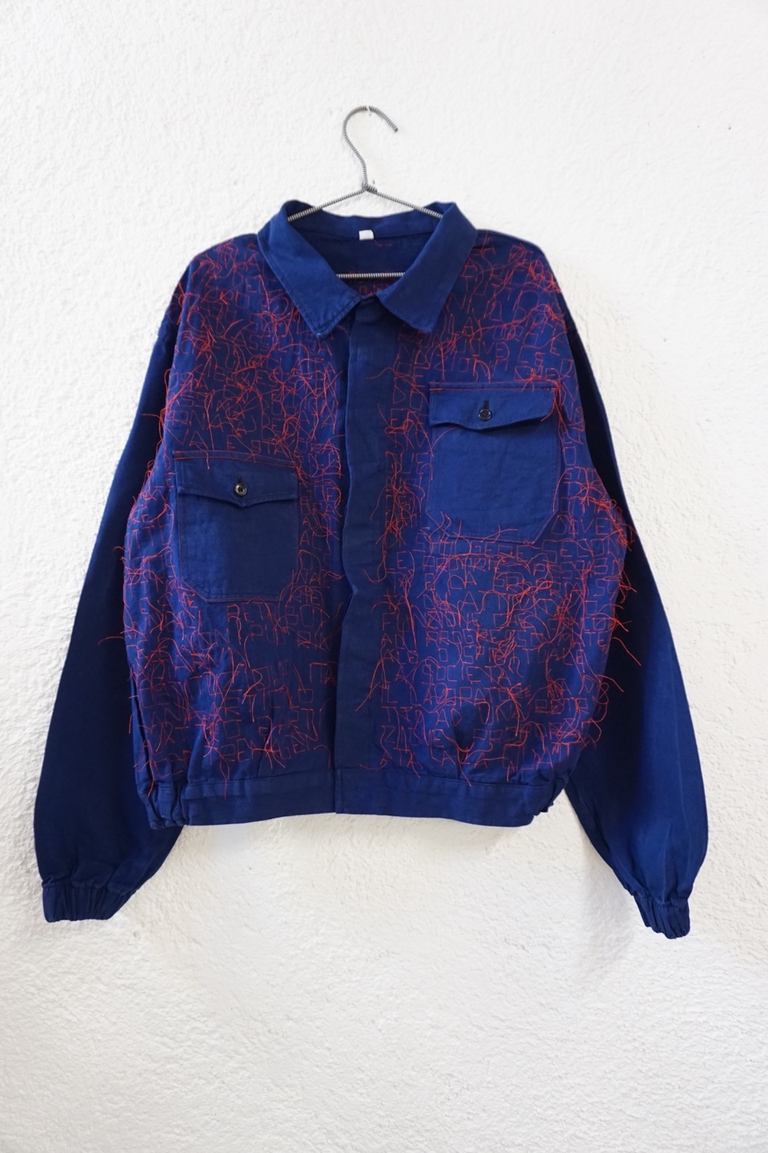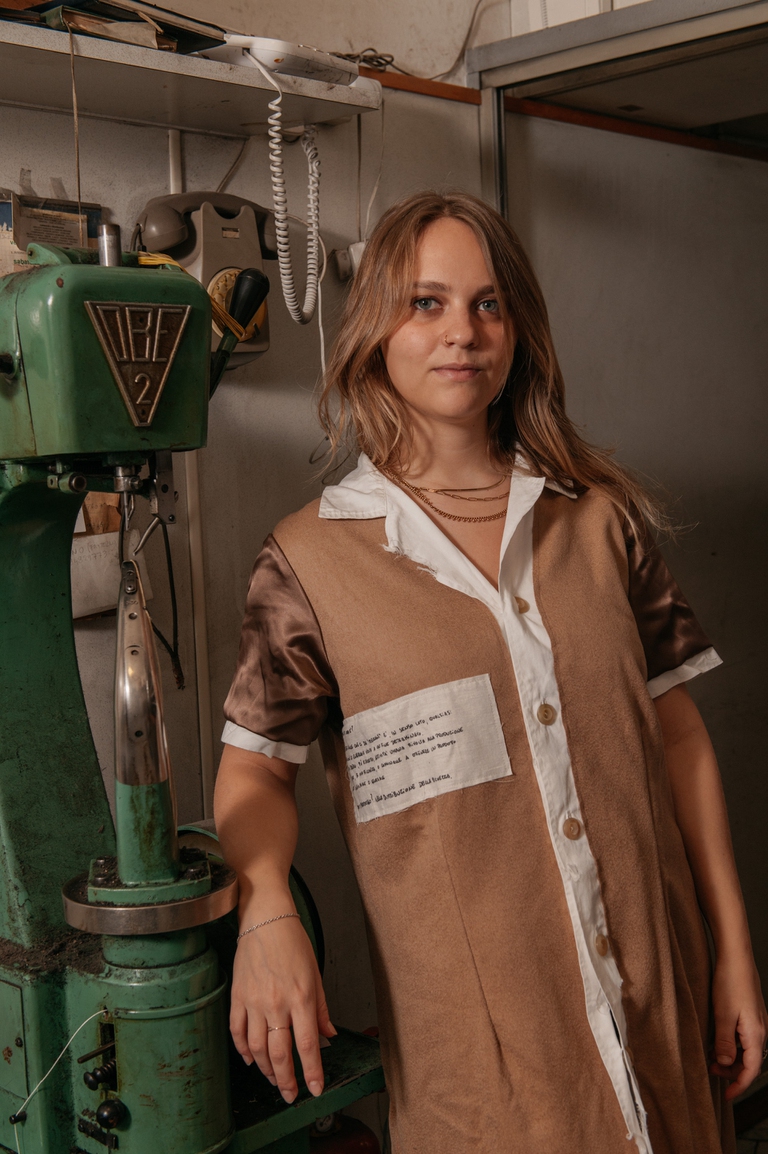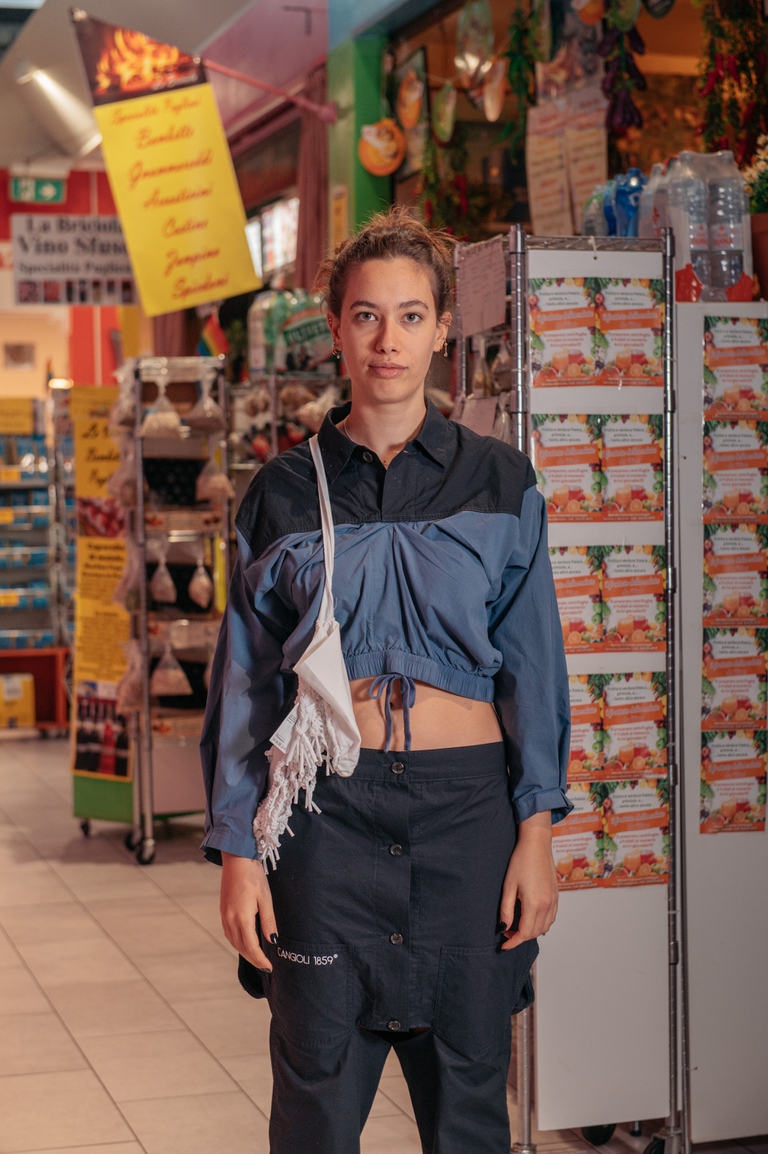https://www.lifegate.it/alla-moda-dal-1948-la-sostenibilita-sociale-in-mostra
- |
Two articles from Italian Constitution embroidered on one Montedison jacket:the idea that gave life to the exhibition-competition originated from this strong and retro image “Fashionable since 1948” promoted by Plot Plaza, a female ethical fashion collective whose aim is to raise awareness on sustainability issues linked to the textile sector through the tools of creativity, theater and visual arts.In particular, this initiative has as its primary focus that of stimulating the community's interest in the Italian manufacturing sector and the state of health of its workers. workers, as he explained to us Laila Bonazzi, fashion journalist and contributor among others to LifeGate and editorial curator of the project.The zero jacket, if we can call it that, is the result of the designer's work Irene Labella, a member of Trama Plaza who had the idea of embroidering the articles 4 and 36 of the Italian Constitution on a jacket bought at a flea market in Puglia and belonging to a Montedison worker.For the competition, seven companies were therefore asked to donate their work uniforms and as many designers and to reinterpret them by choosing a perspective on work that she was dear to him.

“Fashionable since 1948” a competition and an exhibition
“The idea came from the founder of Trama Plaza, Erica Brunetti, observing the jacket created by Irene Labella and donated to the collective.“The Republic recognizes the right to work of all citizens and promotes the conditions that make this right effective.Every citizen has the duty to carry out, according to his own possibilities and choice, an activity or function that contributes to the material or spiritual progress of society" (art.4) and “The worker has the right to remuneration proportionate to the quantity and quality of his work and in any case sufficient to ensure a free and dignified existence for himself and his family.The maximum duration of the working day is established by law" (art.36)”.Work is one of fundamental pieces of our company, for this reason we involved all companies active in the area:the seven who participate in the competition will all have the right to a mentorship and training course on issues related to human rights in the world of work held by Deborah Lucchetti Of Clean Clothes Campaign, while the winning brand will also receive a cash prize of 3000 euros.
“Lately, when it comes to sustainable fashion, I seemed to notice an imbalance of interest towards the issues that concern the aspects of production-environmental impact, rather than those relating to the well-being of the workers which, if you think about it, is a strange thing because that of the workers is a more simple understanding of polluting logic or production processes.It will have happened to many lose your job, or know someone to whom it has happened, the more difficult it is to have direct experience of what it means to translate a certain process into emissions, or fully grasp what the implications of the cotton production or bio-based materials, yet I have found that it is not just my sensation:very little is said about the rights of workers in the textile industry.The same The Fashion Pact for example, which has the particularity of being an initiative implemented by over 160 brands and 60 CEOs, therefore it has a particular interest because it is the fashion industry itself that has set its priorities, it does not include among its action points the people or the workers' rights.The four pillars of the pact are in fact "nature positive actions", "renewable energy", "lower impact materials" and "lower impact production".

The participating brands were asked to rework a work jacket according to the logic ofupcycling, to focus attention on a specific aspect of the production chain.Their works will then be evaluated by a jury made up of the hottest names in Italian sustainability in the textile sector: Marina Spadafora, author and professor and responsible fashion expert, Sara Sozzani Maino, Creative Director Sozzani Foundation, Francesca Rulli, CEO and Founder of Process Factory and CEO and Co-Founder of Ympact Società Benefit and Co-administrator of YHub Holding and creator of the 4sustainability® system, Deborah Lucchetti, national coordinator of the Clean Clothes Campaign, Silvia Gambi journalist and founder of “Solo Moda Sostenibile” and Sustainable Fashion Consultant, Monica Del Grosso, head of global ESG & audit at Moleskine, Anna Detheridge, journalist and president of Connecting Cultures, Melanie Duhamel, fragrance director, Italy, Spain, Portugal at MANE, and finally Tania Gianesin, co-founder of Moleskine Foundation.The winner will be announced on February 1st during the inauguration to be held at Beautiful Theatre of Milan while the jackets will be exhibited in an exhibition that can be visited untilFebruary 11th and hosted in Seicentro Space in via Berlinguer.Some of the photographer's shots will also be exhibited together with the uniforms Agnese Morganti the result of a workshop that involved some residents of the Giambellino district, portrayed in their work uniforms in some historic shops in the southern outskirts of Milan.
The question of Made in Italy
“What I want to bring before everyone's eyes is that the Made in Italy is not exempt from the most pressing issues concerning textile workers, as demonstrated by recent cases of brands placed under commissioners because they were deemed incapable of preventing and curbing phenomena of labor exploitation within their production cycle and because they were deemed responsible for resorting to illegal labor and clandestine” explains Bonazzi.“Made in Italy also presents opaque supply chains where exploitation scenarios are the order of the day and where neither the well-being of the workers nor the lower environmental impact of the boss is looked at.When selecting the competing brands, it seemed right to us to valorize those companies that instead care about it and that have a particularly integrated supply chain over which they are able to have greater control".The brands that will compete in the upcycling contest are: BENNU, BLUE OF A KIND, Guinea pig, _DENNJ_, flavialarocca, Giorgiandreazza And ZEROBARRACENTO.“From their point of view, in addition to awareness and reuse, the designers addressed issues related to the world of work such as maternity, a topic covered by two of the competing brands”.

Another very important aspect for the Trama Plaza collective is that of connection with the territory:“All Made in Italy companies have a similar history, they were all born more or less after the war and are often linked to the mythical story of a founder, who started from a small laboratory and then made the company prosper thanks to to the double-stranded relationship with the territory, for which it has created jobs and given value to resources, often contributing to the creation of production districts.However, it is not a given that this situation will persist for all situations:that of the territory is a fundamental point for us because if a brand does not creates value for its community then it only serves to make profit for itself and is not useful for anything else."
The female and feminist theme
“Another fact that struck me a lot is that work is also a feminist issue, here as elsewhere.We know that globally the majority of exploited textile workers are women, but it is an illusion to think that this is a problem limited to Bangladesh, in Italy the situation is the same.I've done the math and here too the majority of people employed in the textile sector are women:for example, I asked for the data of the 7 companies we worked with and out of a total of 5052 workers, women are approximately double those of men:i.e. 3292 against 1760.The rights of textile workers are therefore to all intents and purposes a women's problem and a feminist problem, both in Bangladesh and in Italy.
